
Jebel Jais: The Majestic Mountain of the UAE
Jebel Jais, the tallest mountain in the United Arab Emirates, stands proudly in the emirate of Ras Al Khaimah. This natural wonder is a paradise for adventure seekers and nature lovers alike. Rising to a height of 1,934 meters, Jebel Jais offers breathtaking views of the rugged Hajar Mountains and the surrounding landscapes. For those who crave excitement, Jebel Jais is home to the world's longest zipline, Jebel Jais Flight, which stretches over 2.8 kilometers. This thrilling ride offers an unparalleled experience as you soar above the rocky terrain. The mountain also features several hiking trails for different skill levels, making it a perfect destination for both seasoned hikers and beginners. Beyond the adrenaline-pumping activities, Jebel Jais boasts a cooler climate compared to the rest of the UAE, providing a refreshing escape from the desert heat. The mountain is also a great spot for picnics, camping, and stargazing, with clear night skies offering a spectacular view of the stars. Whether you're looking for adventure or relaxation, Jebel Jais promises an unforgettable experience.
Local tips in Jebel Jais
- Visit early in the morning or late afternoon to avoid the midday heat.
- Bring plenty of water and snacks, as there are limited facilities on the mountain.
- Wear comfortable hiking shoes if you plan to explore the trails.
- Check the weather forecast before you go; temperatures can drop significantly in the evening.
- Book your zipline tickets in advance to secure your spot.
- Don't forget your camera; the panoramic views are stunning.
Jebel Jais: The Majestic Mountain of the UAE
Jebel Jais, the tallest mountain in the United Arab Emirates, stands proudly in the emirate of Ras Al Khaimah. This natural wonder is a paradise for adventure seekers and nature lovers alike. Rising to a height of 1,934 meters, Jebel Jais offers breathtaking views of the rugged Hajar Mountains and the surrounding landscapes. For those who crave excitement, Jebel Jais is home to the world's longest zipline, Jebel Jais Flight, which stretches over 2.8 kilometers. This thrilling ride offers an unparalleled experience as you soar above the rocky terrain. The mountain also features several hiking trails for different skill levels, making it a perfect destination for both seasoned hikers and beginners. Beyond the adrenaline-pumping activities, Jebel Jais boasts a cooler climate compared to the rest of the UAE, providing a refreshing escape from the desert heat. The mountain is also a great spot for picnics, camping, and stargazing, with clear night skies offering a spectacular view of the stars. Whether you're looking for adventure or relaxation, Jebel Jais promises an unforgettable experience.
When is the best time to go to Jebel Jais?
Iconic landmarks you can’t miss
Jebel Jais - Viewpoint 8
Discover breathtaking views and cool mountain air at Jebel Jais - Viewpoint 8, the highest peak in the UAE, perfect for adventure seekers and nature lovers.
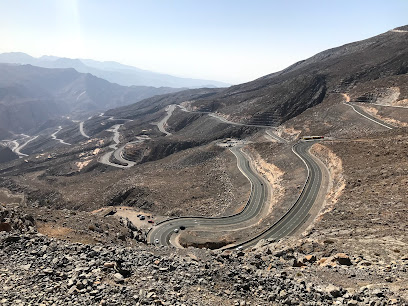
Saqr Park
Discover the beauty of Saqr Park, a tranquil retreat in Ras al Khaimah, where lush landscapes meet recreational fun for all ages.
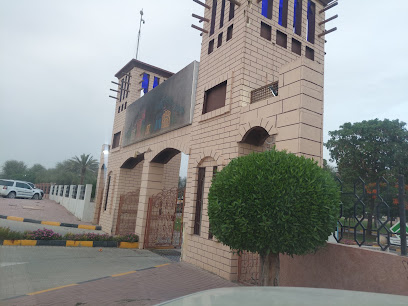
Viewing Deck Park Jebel Jais
Discover breathtaking views and thrilling adventures at Jebel Jais Viewing Deck Park, the UAE's highest mountain experience.
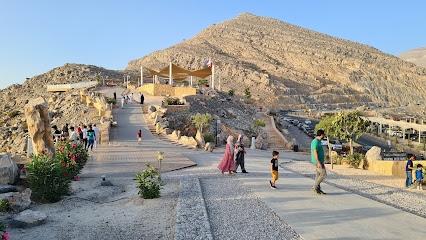
Jebel Jais View Point 1
Discover unparalleled scenic beauty at Jebel Jais View Point 1, the highest peak in the UAE, offering stunning views and a serene escape into nature.
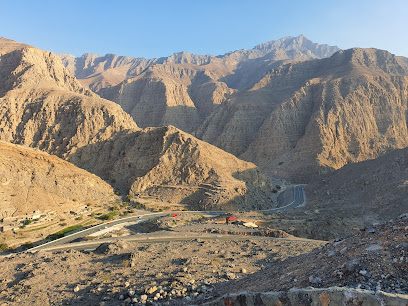
Jebel Jais View Point 2
Discover the stunning views and exhilarating adventures at Jebel Jais View Point, the highest mountain in the UAE, in Ras al Khaimah.
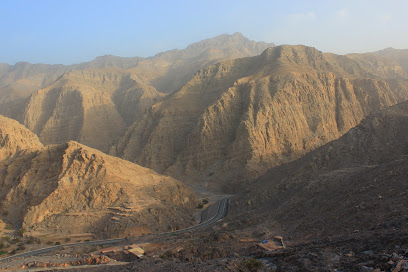
National Museum of Ras Al Khaimah
Explore the National Museum of Ras Al Khaimah, where Emirati history and culture come alive through captivating exhibits and artifacts.

Jebel Al Jais
Discover the breathtaking beauty and adventure of Jebel Al Jais, the UAE's highest peak, offering stunning views and thrilling outdoor activities.
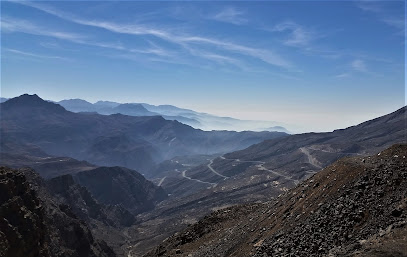
Jebel Jais Area View Point 4
Discover the breathtaking views and serene atmosphere at Jebel Jais Area View Point 4, the highest point in the UAE.
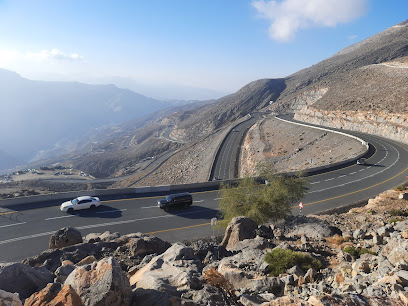
Jebel Jais Entrance
Discover the breathtaking beauty of Jebel Jais, the UAE's highest peak, offering thrilling activities and stunning views in Ras Al Khaimah.
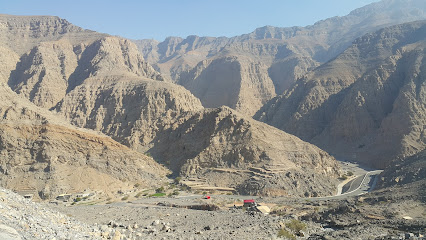
Jabal Al Jais
Experience the breathtaking beauty and thrilling adventures at Jabal Al Jais, the highest peak in the UAE.
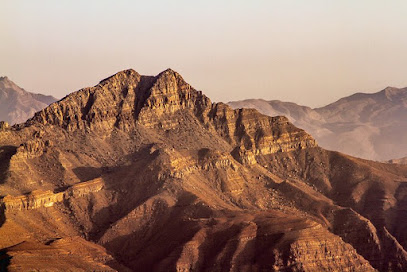
Jais Adventure Park
Discover the thrill of adventure sports at Jais Adventure Park, home to the world's longest zipline and stunning mountain views in Ras al Khaimah.
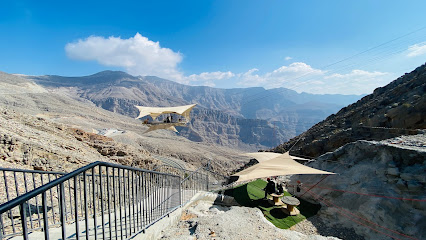
Jebel Jais View Point 3 Wasab village
Experience stunning mountain vistas and refreshing climates at Jebel Jais View Point in Ras al Khaimah, a true gem for nature lovers.
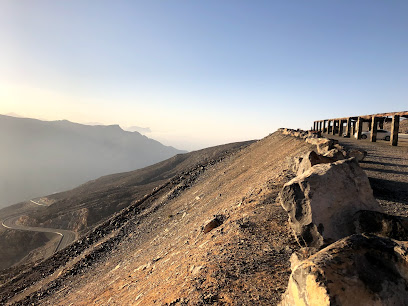
Dhayah Fort
Discover the enchanting Dhayah Fort, a historical gem in Ras Al Khaimah with stunning views and rich Emirati heritage.
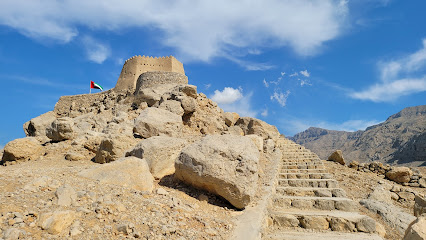
Bassata Village
Explore Bassata Village in Ras al Khaimah, where Emirati culture comes alive through immersive experiences, traditional performances, and delightful cuisine.
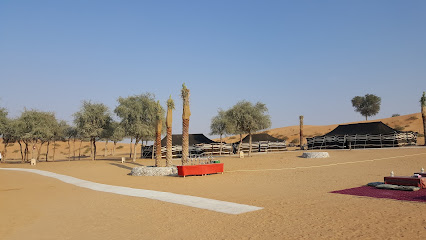
Jais Sledder
Discover the thrill of the Jais Sledder, the world's longest toboggan track, on the stunning Jebel Jais mountain in Ras al Khaimah.
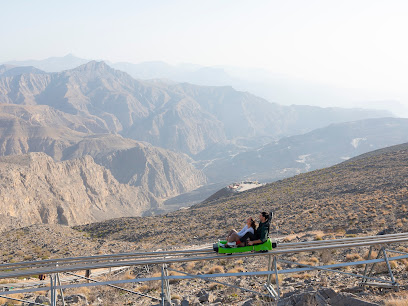
Unmissable attractions to see
Royal Yacht Club of Ras Al Khaimah
Experience luxury sailing and breathtaking waterfront views at the Royal Yacht Club of Ras Al Khaimah, a premier destination for nautical adventures.
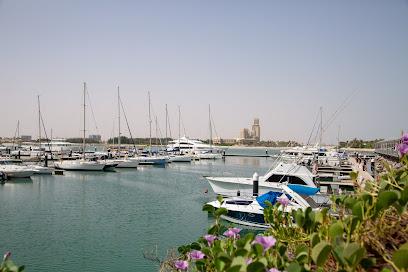
Jebel Jais Hiking Trails - Upper Segment
Explore the breathtaking hiking trails of Jebel Jais, featuring stunning views, diverse terrain, and thrilling outdoor adventures for every level of hiker.
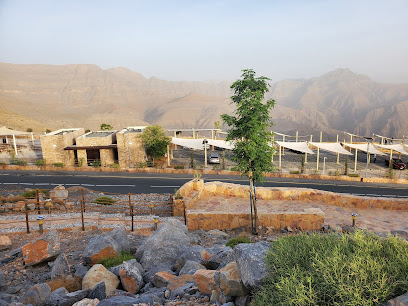
Jebel Jais Viewpoint 5
Experience the breathtaking vistas of Jebel Jais Viewpoint 5, a scenic gem in Ras al Khaimah, perfect for nature lovers and adventure seekers.
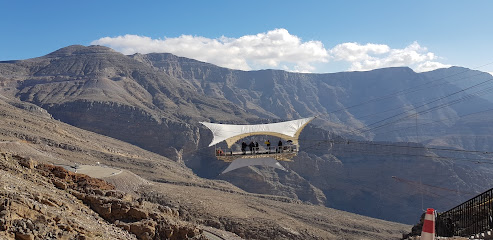
Viewing Point
Discover the stunning vistas and exhilarating adventures at the Jebel Jais Viewing Point in Ras al Khaimah, UAE.
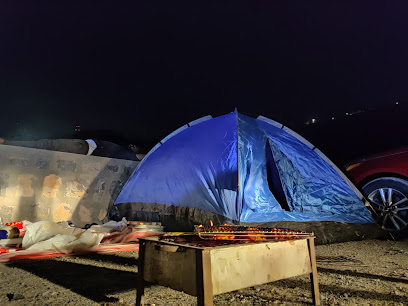
Toro Verde's Jebel Jais Flight
Soar through the sky at Toro Verde's Jebel Jais Flight, the world's longest zipline, and experience breathtaking views of Ras al Khaimah's stunning landscapes.
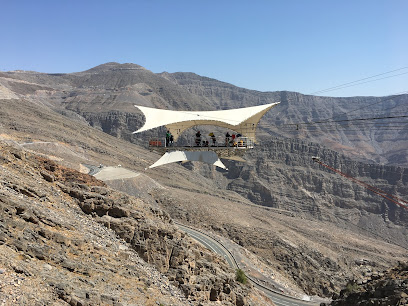
Stairway to Heaven start
Explore the breathtaking Stairway to Heaven in Ras al Khaimah, where adventure and stunning views await every hiker.
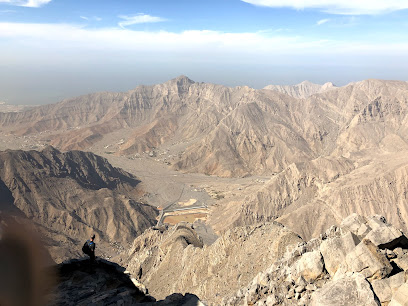
View point, Jebel Jais
Experience the breathtaking beauty of Jebel Jais, the highest peak in the UAE, with panoramic views and thrilling adventures awaiting every visitor.
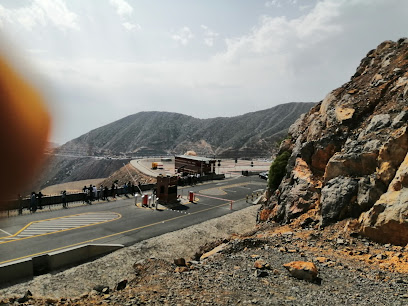
Ghalilah sea view
Discover the breathtaking views and serene atmosphere of Ghalilah Sea View in Ras al Khaimah, a perfect destination for relaxation and adventure.
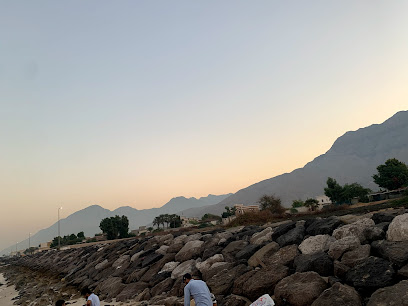
Sal Shehah (Hidden Oasis)
Explore the serene landscapes of Sal Shehah, a hidden oasis in Ras al Khaimah offering unforgettable hiking experiences amidst nature's beauty.
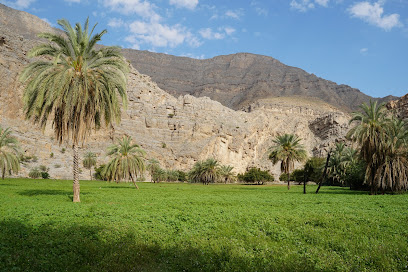
Jebel Jais tourist area. Lookout
Explore the majestic Jebel Jais Lookout, where breathtaking mountain views and outdoor adventures await in Ras al Khaimah, UAE.

Parking for Hidden Oasis Trek
Experience the breathtaking beauty of Hidden Oasis Trek in Ras al Khaimah, where nature meets adventure in stunning landscapes.
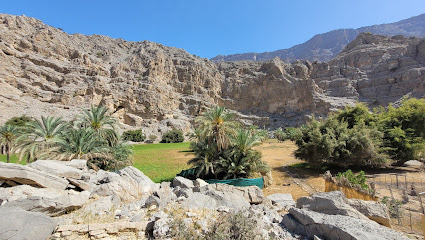
RAK Mangroves
Discover the serene beauty of RAK Mangroves, a tranquil escape into nature's wonderland in Ras al Khaimah, perfect for adventure and relaxation.
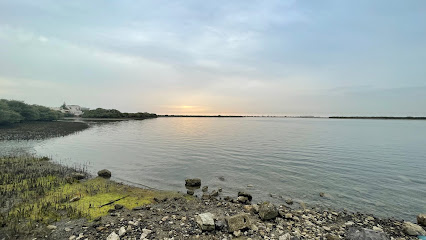
1484 View Point
Discover the breathtaking beauty of 1484 View Point in Ras al Khaimah, where panoramic views and serene landscapes await every visitor.
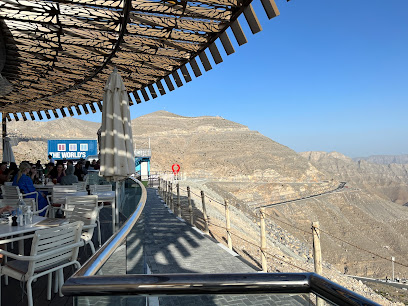
Jebal Jais sunrise view
Discover Jebal Jais, the UAE's highest peak, and witness mesmerizing sunrises that illuminate the mountain landscapes in breathtaking colors.
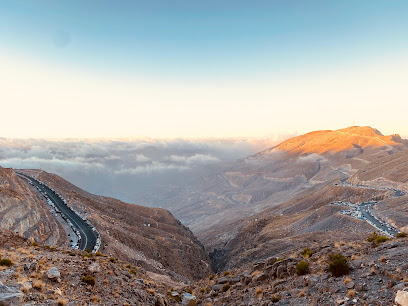
Jebel Jais Lower Segment / Samar Trail Hiking Parking
Experience the breathtaking beauty and exhilarating trails of Jebel Jais Lower Segment, a hiking haven in Ras al Khaimah, UAE.
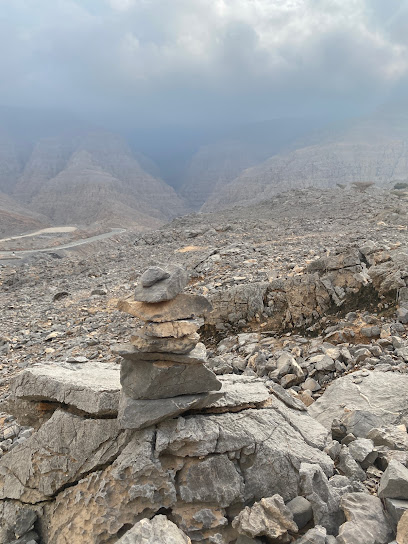
Essential places to dine
مطعم بحر الامارات Emirates Sea Restaurant Ras Al Khaimah
Discover exquisite seafood dishes at Emirates Sea Restaurant in Ras Al Khaimah, where fresh flavors meet stunning coastal views.
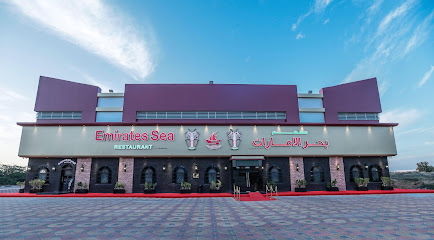
1484 By Puro
Experience exquisite dining at 1484 By Puro, where breathtaking mountain views meet culinary excellence in Ras al Khaimah.
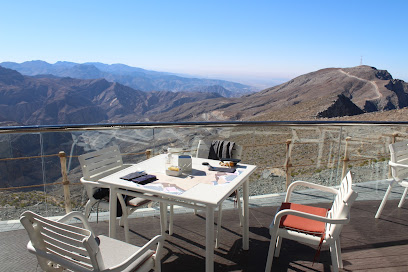
AlFalah Chappli Kabaaab Ras AlKhaimah
Experience authentic Afghan flavors at AlFalah Chappli Kabaaab in Ras AlKhaimah—home of the iconic Chapli Kebab.
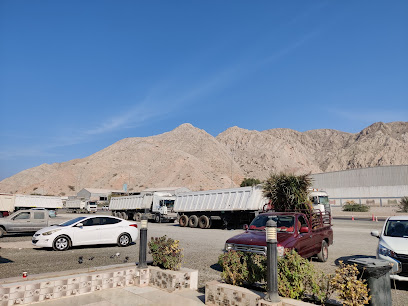
Thai gate
Savor the authentic taste of Thailand at Thai Gate in Ras al Khaimah - A culinary journey through vibrant flavors and fresh ingredients.
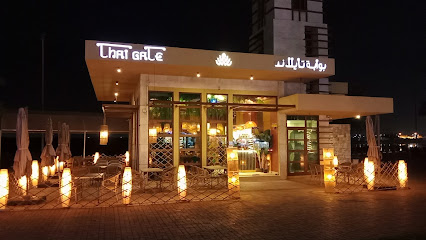
Venus Deluxe Restaurant
Discover delicious dining at Venus Deluxe Restaurant in Ras al Khaimah – where traditional meets contemporary in every dish.
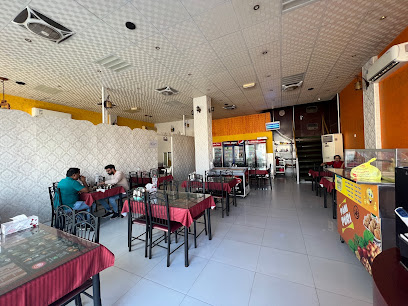
Moti Mahal Delux Restaurant Ras Al Khaimah
Discover authentic Indian flavors at Moti Mahal Delux Restaurant in Ras Al Khaimah, where every meal is a celebration of taste and tradition.
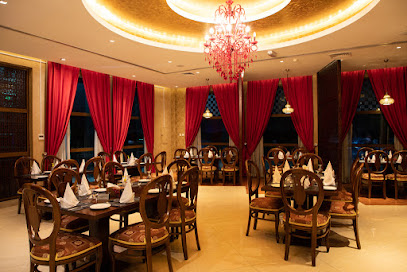
Arabian Sea (former Indian Chef)
Discover the rich flavors of Middle Eastern cuisine at Arabian Sea Restaurant in Ras al Khaimah, where every meal tells a story.
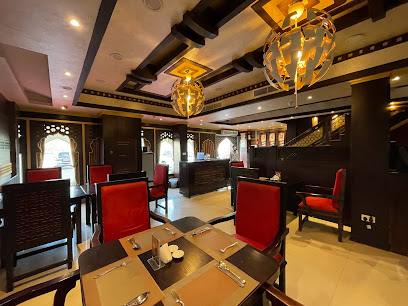
La Burrata Italian restaurant
Discover authentic Italian flavors at La Burrata in Ras al Khaimah – where every dish tells a story of tradition and passion.
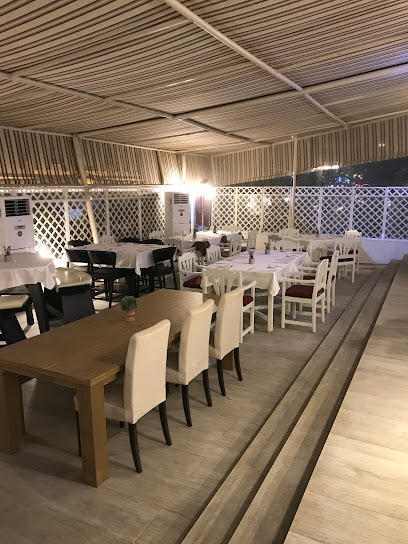
Skeek Restaurant & Cafe مطعم وكافيه سكيك
Discover the rich flavors of Ras al Khaimah at Skeek Restaurant & Cafe - where tradition meets modern cuisine in a cozy setting.
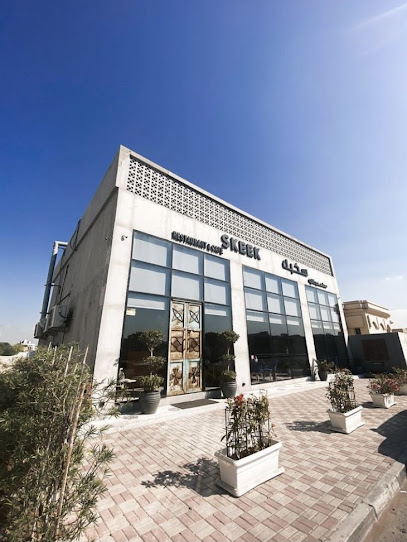
Al Faris Restaurant buraydah
Experience authentic Middle Eastern flavors at Al Faris Restaurant in Ras Al Khaimah – a must-visit for every food lover!
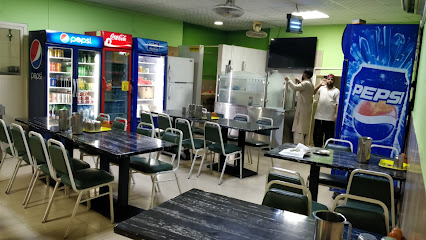
Basilico Mediterranean Restaurant
Experience authentic Mediterranean flavors at Basilico Restaurant in Ras al Khaimah – where every meal tells a story.
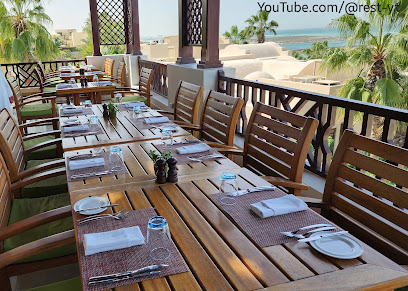
Farmhouse
Discover Farmhouse at The Ritz-Carlton Ras al Khaimah for an exceptional dining experience blending rustic elegance with gourmet delights.
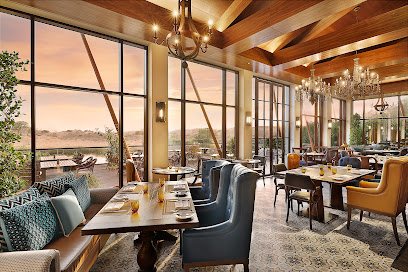
Piaceri Da Gustare
Discover the essence of Italy at Piaceri Da Gustare, where authentic cuisine meets an inviting atmosphere in Ras al Khaimah.
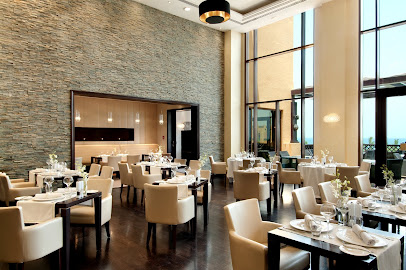
Levant & Nar - Turkish & Lebanese Restaurant
Discover Levant & Nar in Ras Al Khaimah: A dining gem offering authentic Turkish and Lebanese cuisine amidst stunning resort surroundings.
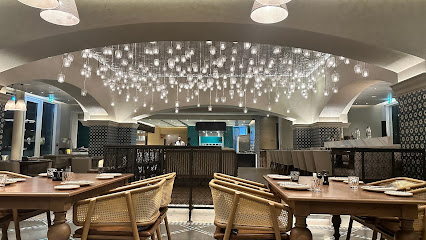
Zaitouna House
Experience authentic Lebanese flavors at Zaitouna House on Al Marjan Island—where culinary excellence meets breathtaking views.
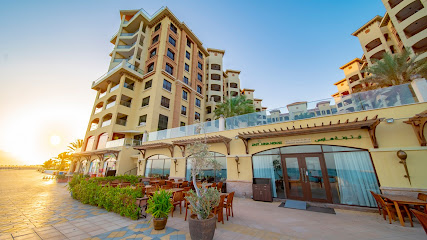
Markets, malls and hidden boutiques
Jebel Jais
Discover the breathtaking beauty and thrilling adventures at Jebel Jais, the highest peak in the UAE, where nature and excitement collide.

Jebel Jais - Viewpoint 8
Discover the majestic beauty of Jebel Jais - Viewpoint 8, where breathtaking landscapes and thrilling adventures await in Ras al Khaimah.
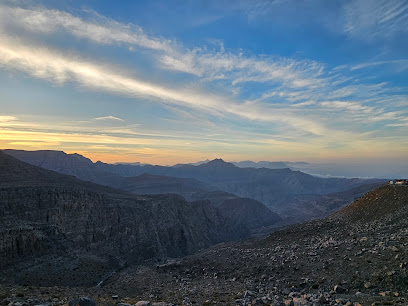
Viewing Deck Park Jebel Jais
Discover stunning vistas and adventure at Jebel Jais Viewing Deck Park, the UAE’s highest mountain, where breathtaking views await every visitor.
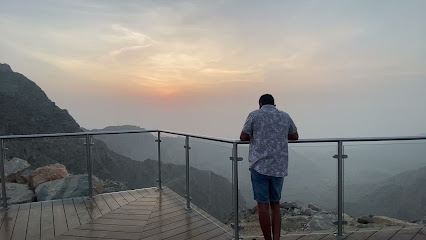
Jebel Jais View Point 1
Discover breathtaking vistas at Jebel Jais View Point 1, the highest peak in the UAE, where adventure meets stunning natural beauty.
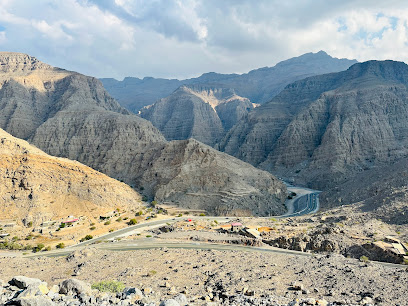
Jebel Jais Entrance
Experience the breathtaking heights and thrilling adventures at Jebel Jais Entrance, the UAE's tallest mountain destination.
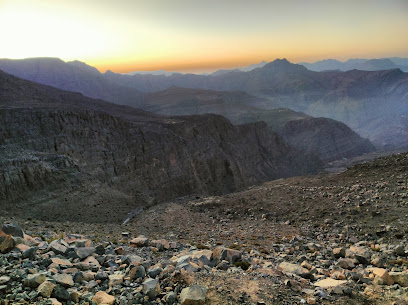
Jabal Al Jais
Discover the breathtaking beauty of Jabal Al Jais, the UAE's highest mountain, offering thrilling hikes and stunning vistas for every adventurer.
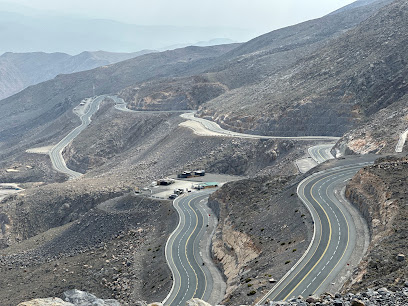
Jais Adventure Park
Experience the thrill of a lifetime at Jais Adventure Park, Ras al Khaimah's premier destination for adventure sports and breathtaking views.
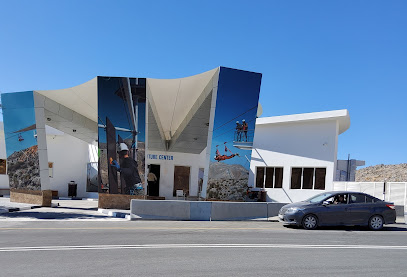
Jebel Jais Hiking Trails - Upper Segment
Explore breathtaking landscapes and experience thrilling adventures at Jebel Jais Hiking Trails, the UAE's ultimate outdoor destination.
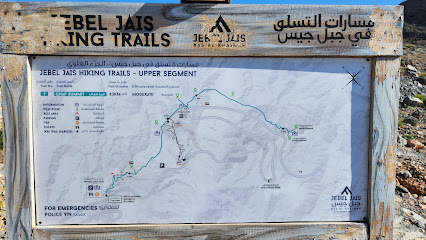
Ras Al Khaimah Jebel Jais Zipline - Extreme Tours
Experience the thrill of the world's longest zipline at Jebel Jais, soaring above stunning landscapes in Ras Al Khaimah.
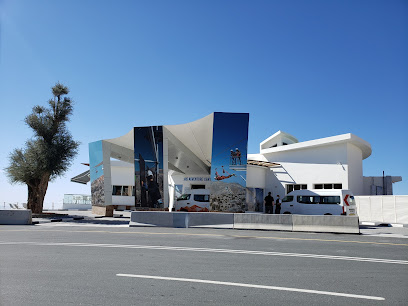
Toro Verde's Jebel Jais Flight
Soar through the skies on the Jebel Jais Flight, the longest zipline in the world, set against the stunning backdrop of Ras al Khaimah's mountains.
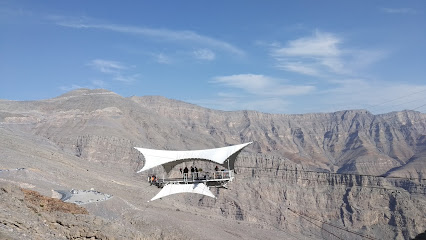
View point, Jebel Jais
Experience the breathtaking heights of Jebel Jais, the UAE's tallest mountain, with stunning views, outdoor adventures, and unforgettable moments.
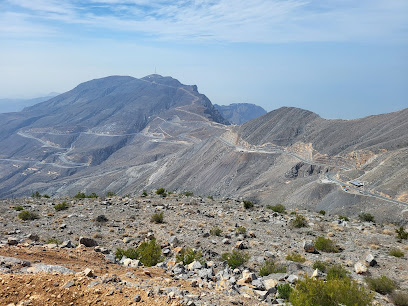
Jebel Jais tourist area. Lookout
Discover the majestic beauty of Jebel Jais Lookout, the highest peak in the UAE, offering stunning views and adventurous activities.
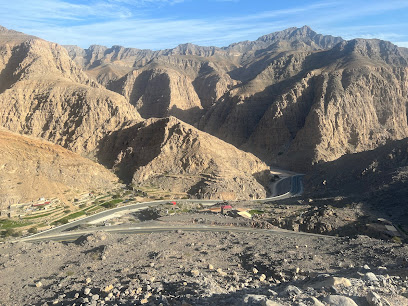
زواره للحلويات
Discover the sweetness of Zawara Confectionery in Al Rams, Ras al Khaimah, where every treat is a taste of happiness.
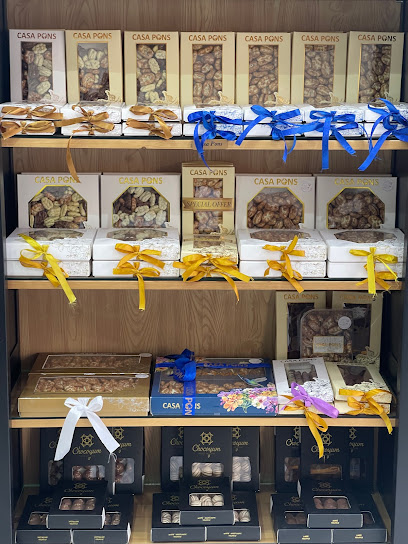
AlAbyadh Foodstuff Sale
Explore a vibrant grocery store in Ras al Khaimah offering local and international delicacies for all food lovers.

Al Qala Bookshop مكتبة القلعة
Explore Al Qala Bookshop, a cozy haven for book lovers in Ras Al-Khaimah, offering a diverse collection of literature in a tranquil setting.
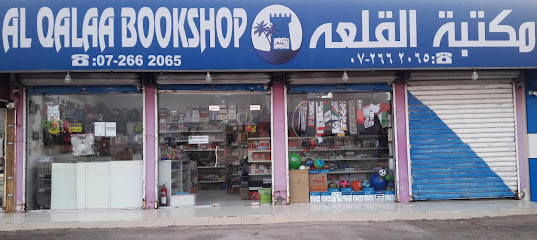
Essential bars & hidden hideouts
SOL Beach Lounge & Bar
Discover the perfect blend of relaxation and entertainment at SOL Beach Lounge & Bar, where stunning views meet delicious cocktails in Ras al Khaimah.
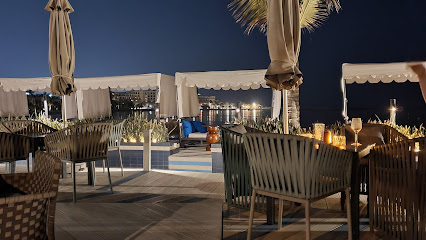
The Huddle Sports Bar & Grill - Ras Al Khaimah
Experience the vibrant atmosphere of The Huddle Sports Bar & Grill in Ras Al Khaimah, where food, drinks, and sports come together.
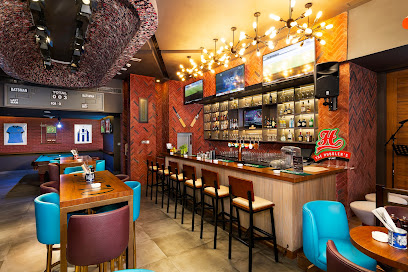
Cider Bay
Discover Cider Bay in Ras al Khaimah for a delightful blend of refreshing drinks, stunning views, and a vibrant atmosphere perfect for tourists.
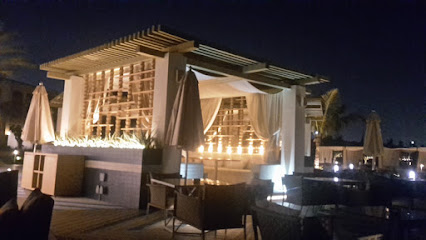
Sand Bar
Discover the ultimate relaxation at Sand Bar in Ras Al Khaimah, featuring a stunning pool and refreshing cocktails in a vibrant atmosphere.
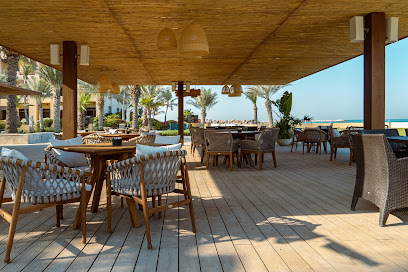
Pebbles Sports Bar
Discover the lively Pebbles Sports Bar in Ras al Khaimah, where sports and socializing come together for an unforgettable experience.
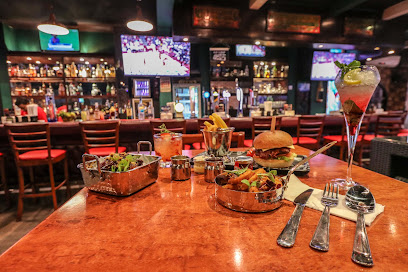
Breeze Bar
Discover the perfect blend of relaxation and entertainment at Breeze Bar in Ras Al-Khaimah, where stunning views meet exquisite drinks.
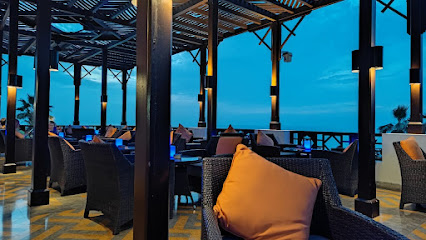
TreeTop Bar
Discover the lively ambiance and exquisite drinks at TreeTop Bar in Ras al Khaimah, the ultimate nightlife destination for tourists.
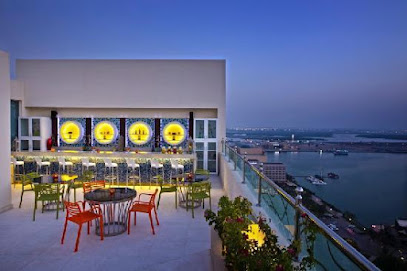
X.O Bar
Experience the vibrant nightlife at X.O Bar in Ras Al Khaimah, offering a stunning ambiance, exquisite drinks, and a lively atmosphere for all.
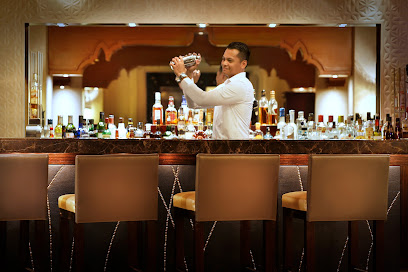
Crazy Horse Bar
Discover the lively atmosphere of Crazy Horse Bar in Ras al Khaimah, where cocktails, music, and fun create an unforgettable nightlife experience.

J.R BAR
Discover the lively atmosphere of J.R BAR in Al Nakheel for an unforgettable nightlife experience in Ras Al Khaimah.
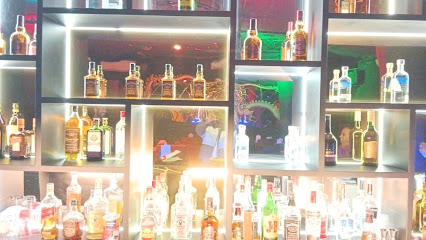
Garden Bar
Experience the vibrant atmosphere and refreshing drinks at Garden Bar, Ras al Khaimah's perfect retreat for relaxation and socializing.
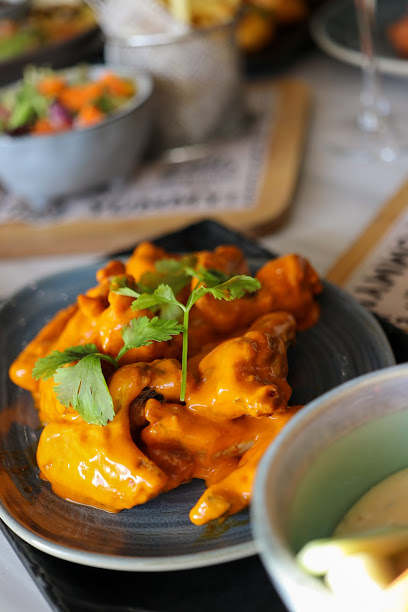
Lion bar Ras al khaimah ليون بار راس الخيمة
Discover the lively ambiance and mouth-watering grilled dishes at Lion Bar in Ras Al Khaimah, a must-visit culinary gem for tourists.
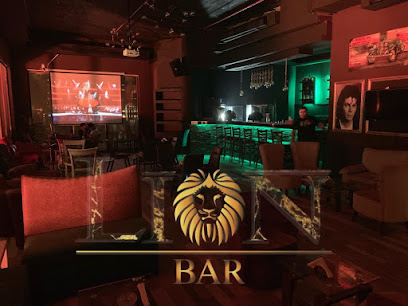
THE PAVILION Bollywood Themed Sports Bar & Lounge at Camphor Hotel
Discover The Pavilion, a Bollywood-themed sports bar in Ras Al-Khaimah, blending live sports with vibrant nightlife and delicious cuisine.
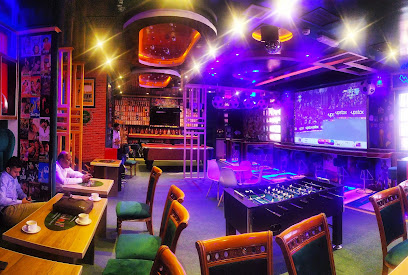
Polo Bar
Discover the cozy Polo Bar on Al Qawasim Corniche, where refreshing drinks meet stunning coastal views in Ras Al-Khaimah.
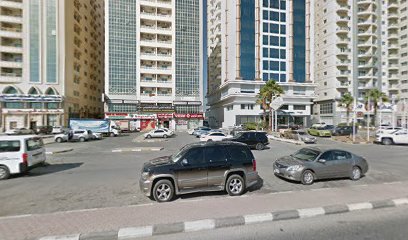
Local Phrases about Jebel Jais
-
- Helloمرحبا
[marhaban] - Goodbyeوداعا
[wadaean] - Yesنعم
[naam] - Noلا
[laa] - Please/You're welcomeمن فضلك
[min fadlik] - Thank youشكرا
[shukran] - Excuse me/Sorryعذرا
[aathirana] - How are you?كيف حالك؟
[kayf halik?] - Fine. And you?بخير. وأنت؟
[bikhayr. wa'ant?] - Do you speak English?هل تتحدث الإنجليزية؟
[hal tatahadath al'iinjlizia?] - I don't understandلا أفهم
[laa afham]
- Helloمرحبا
-
- I'd like to see the menu, pleaseأود أن أرى القائمة، من فضلك
[awad 'an 'ara alqaimah, min fadlik] - I don't eat meatأنا لا آكل اللحم
[ana la aakul allahm] - Cheers!في صحتك!
[fi sahtak!] - I would like to pay, pleaseأود أن أدفع، من فضلك
[awad 'an 'adfae, min fadlik]
- I'd like to see the menu, pleaseأود أن أرى القائمة، من فضلك
-
- Help!النجدة!
[alnajdah!] - Go away!اذهب بعيدا!
[idhab baedan!] - Call the Police!اتصل بالشرطة!
[atsal bialshurta!] - Call a doctor!اتصل بالطبيب!
[atsal bialtabib!] - I'm lostلقد ضللت الطريق
[laqad dalalt altariq] - I'm illأنا مريض
[ana mareed]
- Help!النجدة!
-
- I'd like to buy...أود شراء...
[awad shira...] - I'm just lookingأنا فقط أتطلع
[ana faqat atatlue] - How much is it?كم سعره؟
[kam saeruh?] - That's too expensiveهذا غالي جدا
[hadha ghali jiddan] - Can you lower the price?هل يمكنك خفض السعر؟
[hal yumkinuka khafd alsaer?]
- I'd like to buy...أود شراء...
-
- What time is it?كم الساعة؟
[kam alssaah?] - It's one o'clockالساعة الواحدة
[alssaah alwahidah] - Half past (10)الساعة العاشرة والنصف
[alssaah al'eashirah walnisf] - Morningالصباح
[assabah] - Afternoonالظهر
[alzuhur] - Eveningالمساء
[almasa] - Yesterdayالبارحة
[albarihah] - Todayاليوم
[alyawm] - Tomorrowغدا
[ghadan] - 1واحد
[wahid] - 2اثنان
[ithnan] - 3ثلاثة
[thalathah] - 4أربعة
[arbaah] - 5خمسة
[khamsah] - 6ستة
[sittah] - 7سبعة
[sabah] - 8ثمانية
[thamaania] - 9تسعة
[tis'ah] - 10عشرة
[easharah]
- What time is it?كم الساعة؟
-
- Where's a/the...?أين...؟
[ayn...?] - What's the address?ما هو العنوان؟
[ma hu al'anaan?] - Can you show me (on the map)?هل يمكنك أن تريني (على الخريطة)؟
[hal yumkinuka 'an tureeni (ealaa alkharyata)?] - When's the next (bus)?متى يأتي الحافلة القادمة؟
[mata yati alhafilat alqadimah?] - A ticket (to ....)تذكرة (إلى...)
[tadhkarat ('iilaa...)]
- Where's a/the...?أين...؟
History of Jebel Jais
-
Jebel Jais, the highest peak in the United Arab Emirates, has been a significant landmark for millennia. Archaeological evidence suggests that the area was inhabited by early human settlers as far back as the Bronze Age. The rugged terrain offered natural protection and a strategic vantage point, making it an ideal location for ancient communities. Pottery shards, stone tools, and remnants of primitive dwellings have been discovered, providing insights into the daily lives of these early settlers.
-
The nearby coastal city of Julfar, now part of Ras Al Khaimah, was a bustling trade hub in the Middle Ages. Jebel Jais played a crucial role in this period as a source of freshwater and a landmark for traders navigating the Arabian Gulf. The mountain's springs and streams provided essential resources for the inhabitants of Julfar, and its strategic location offered a natural lookout point to monitor maritime activities. The connection between Jebel Jais and Julfar underscores the mountain's importance in regional trade and commerce.
-
In the early 19th century, Jebel Jais became the backdrop for a significant conflict between the local tribes and the British forces. The Battle of Jebel Jais was part of a broader campaign to exert control over the strategic waterways of the Arabian Peninsula. The local tribes, known for their resilience and knowledge of the mountainous terrain, put up a formidable resistance. Although the British eventually gained the upper hand, the battle highlighted the strategic importance of Jebel Jais and its role in the region's military history.
-
In recent years, Jebel Jais has undergone significant development, transforming it into a major tourist destination. The construction of the Jebel Jais Mountain Road, completed in the early 21st century, made the area more accessible to visitors. This 20 km winding road offers breathtaking views and has become a popular attraction for both tourists and locals. Additionally, the introduction of adventure sports, such as the Jebel Jais Flight, the world's longest zipline, has further cemented the mountain's status as a premier destination for thrill-seekers. These modern developments have brought a new dimension to Jebel Jais, merging its rich history with contemporary attractions.
Jebel Jais Essentials
-
Jebel Jais is located in the Emirate of Ras Al Khaimah in the United Arab Emirates. The nearest international airport is Ras Al Khaimah International Airport, approximately 45 kilometers away. From there, you can take a taxi or rent a car to reach Jebel Jais. Alternatively, Dubai International Airport is around 120 kilometers away, and from Dubai, you can drive or take a bus to Ras Al Khaimah, followed by a taxi to Jebel Jais. The journey by road from Dubai typically takes around 2 hours.
-
While exploring Jebel Jais, renting a car is the most convenient option, as it provides the flexibility to explore at your own pace. There are several car rental agencies in Ras Al Khaimah and Dubai. Taxis are also available, but they can be expensive for long distances. There is no public transport directly to Jebel Jais, so private transportation is recommended.
-
The official currency in the United Arab Emirates is the Emirati Dirham (AED). Credit and debit cards are widely accepted in most establishments, including hotels, restaurants, and shops. However, it is advisable to carry some cash, especially for small purchases and in remote areas. ATMs are available in Ras Al Khaimah and major tourist spots, but may be limited in Jebel Jais itself.
-
Jebel Jais is generally a safe destination for tourists. The UAE has a low crime rate, but it is always wise to take standard precautions. Keep your belongings secure, avoid walking alone at night in unfamiliar areas, and be cautious of your surroundings. There are no specific high-crime areas targeting tourists in Jebel Jais.
-
In case of emergency, dial 999 for police, 998 for ambulance, and 997 for fire services. Ensure you have travel insurance that covers medical emergencies. There are basic medical facilities in Ras Al Khaimah, and more comprehensive medical care is available in Dubai. For minor health issues, there are pharmacies in Ras Al Khaimah where you can purchase over-the-counter medications.
-
Fashion: Do dress modestly, especially when visiting public areas. Avoid wearing revealing clothing. Religion: Do respect local customs and traditions. Public Transport: Do be respectful and follow local etiquette if using any form of public transport. Greetings: Do greet people with a handshake. A slight nod or 'As-salamu alaykum' (peace be upon you) is also appreciated. Eating & Drinking: Do try local delicacies and accept food offerings graciously. Don’t eat, drink, or smoke in public during Ramadan in daylight hours.
-
To experience Jebel Jais like a local, visit during the cooler months from October to April. Try to arrive early in the morning to catch the sunrise or late afternoon for the sunset, as these times offer the best views. Be sure to check out the Jebel Jais Viewing Deck Park for panoramic views. Engage with local guides for a richer experience, and don't miss the chance to try traditional Emirati cuisine at nearby restaurants.
Trending Landmarks in Jebel Jais
-
Jebel Jais - Viewpoint 8
-
Saqr Park
-
Viewing Deck Park Jebel Jais
-
Jebel Jais View Point 1
-
Jebel Jais View Point 2
-
National Museum of Ras Al Khaimah
-
Jebel Al Jais
-
Jebel Jais Area View Point 4
-
Jebel Jais Entrance
-
Jabal Al Jais
-
Jais Adventure Park
-
Jebel Jais View Point 3 Wasab village
-
Dhayah Fort
-
Bassata Village
-
Jais Sledder
Nearby Cities to Jebel Jais
-
Things To Do in Khasab
-
Things To Do in Dibba Al-Fujairah
-
Things To Do in Khor Fakkan
-
Things To Do in Umm Al Quwain
-
Things To Do in Ajman
-
Things To Do in Fujairah
-
Things To Do in Sharjah
-
Things To Do in Dubai
-
Things To Do in Sohar
-
Things To Do in Al Ain
-
Things To Do in Abu Dhabi
-
Things To Do in Ibri
-
Things To Do in Rustaq
-
Things To Do in Muscat
-
Things To Do in Bahla






